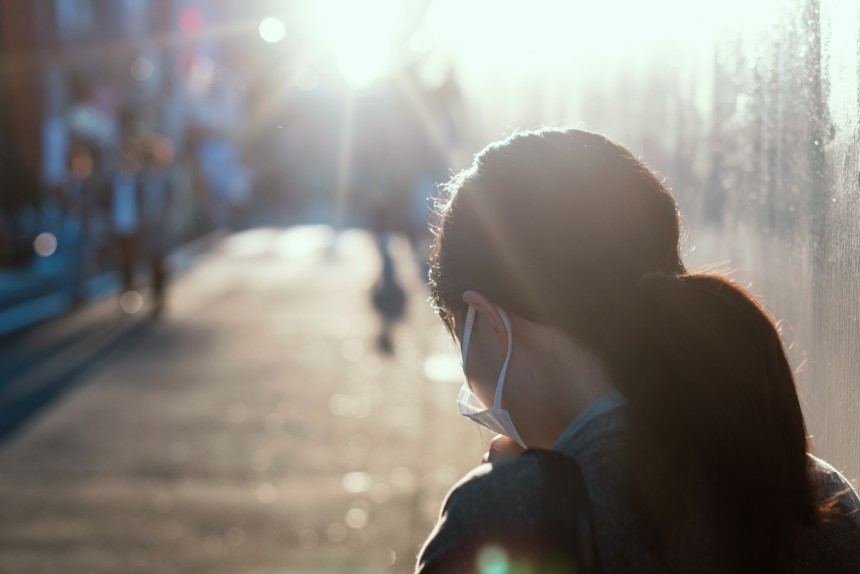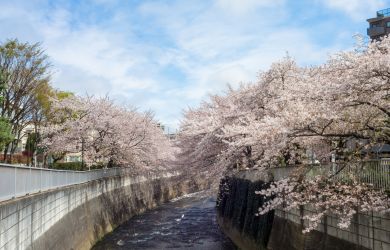
March 12, 2020
Coronavirus in Japan: Updates and Tips
The current outbreak and how to plan for the months ahead
By Metropolis
Due to the current outbreak of the new coronavirus in Japan (COVID-19), people in the capital and beyond have had to rethink their plans for the upcoming months.
Considered the best season to visit Japan, spring marks the beginning of some of the year’s brightest moments. From hanami (cherry blossom viewing) in March and April to Golden Week in May, large gatherings and tourist influxes — the perfect storm for a spreading virus — are the norm during this bustling period. To prevent further outbreak, major events are being postponed or cancelled, and venues throughout Tokyo, including theme parks, museums and tourist attractions, are temporarily closing shop.
Live updates on COVID-19 in Tokyo from the Tokyo Metropolitan Government.
In a word, things are uncertain. So much so that the longest-serving member of the International Olympic Committee said the 2020 Tokyo Games, set to begin in July, would be postponed. The world’s biggest sporting event aside, health and safety are at the top of everybody’s mind. Keep reading to stay informed about the state of the outbreak in Japan and how to best prevent yourself from infection, whether you’re a traveler or resident.
How serious is the coronavirus in Japan?
According to the World Health Organization’s Coronavirus disease 2020 (COVID-19) Situation Report – 94, there have been a total of 11,919 confirmed cases in Japan as of April 23 2020.
Breaking News: Japan is closing its schools for a month to contain the spread of the coronavirus. The country is the second, after China, to do so. https://t.co/d873A8FwJC
— The New York Times (@nytimes) February 27, 2020
Although this figure is comparatively lower than China (more than 84,000 cases – April 23), the country has overtaken South Korea (10,721 confirmed cases – April 23), causing ripples of unease across Japan’s population.
Long lines outside shuttered pharmacies ahead of store opening times have become a common sight, and many stores have been restricting sales of masks to one pack per person. Prime Minister Shinzo Abe has recently announced the closure of all elementary, middle and high schools across the country until the end of spring break (although many daycare centers may still be open). More and more companies are urging employees to work from home or insisting that staff wear masks and use alcohol sanitizer, and many much-anticipated events have been cancelled or postponed nationwide.
If you’re in Japan and worried, would like clear and concise information on updates or just need someone to talk to, you can contact TELL Japan, anonymously, for free at TELL Lifeline.
Which attractions are closed?
Many venues for events, including museums, art galleries and tourist attractions, have decided to close temporarily until mid-March. These decisions have been made as preventive measures to help minimize the spread of the virus, and also to safeguard the health and welfare of the venues’ employees and visitors. Temporarily closed museums include Tokyo National Museum, Mori Art Museum, TeamLab Borderless and Planets and the National Museum of Modern Art, Tokyo. Tokyo Disneyland and Tokyo DisneySea are both closed until further notice. Check the end of this page for a full list of venues that have temporarily shut their doors in Tokyo.
For the most up-to-date information, please check the attraction’s website before visiting or purchasing tickets.
JUST IN: A woman working in Japan has tested positive for the coronavirus for a second time — the first case of reinfection to be reported in the country https://t.co/UszrnjaOPN
— CNN (@CNN) February 27, 2020
Tips for avoiding infection
As there is no vaccination for the coronavirus yet, it’s advised that individuals take preventative actions against the new virus:
- Respiratory hygiene: Cover your mouth when you sneeze or use a tissue and throw it away. If you’re wearing a mask, make sure you’re putting it on correctly. If it’s disposable, throw it away safely and replace it at least daily.
- Wash your hands thoroughly for 20 seconds with soap or an alcohol-based hand sanitizer frequently, particularly after touching public surfaces and before and after you eat.
- Avoid touching your eyes, nose and mouth with unwashed hands.
- Avoid crowded places and unnecessary travel as much as possible.
- Work remotely from home if possible rather than going into the office.
- Wipe down and clean your mobile phone regularly.
- Check your airline news regularly as some flights to certain destinations might be canceled.
If you experience cold or flu-like symptoms, which could include a cough, fever and shortness of breath, should contact a healthcare professional as soon as possible and avoid contact with others.
What if I’m traveling to Japan?
If you are planning on traveling to Japan and you’re worried about the coronavirus, here are some steps you can take to help keep you healthy and safe:
- If possible, bring an alcohol-based hand sanitizer and face masks from your home country, as it can be difficult to find these products in Japan.
- Avoid traveling at rush hour when possible.
- If traveling to other tourist attractions, check websites for closures before purchasing tickets and keep up to date with the local news.
- If you’re worried while traveling through Japan, the Japan National Tourism Organization (JNTO) operates a visitor hotline 24 hours a day, 365 days a year. Support is available in English, Japanese, Chinese and Korean.
From Japan 050-3816-2787
From Overseas +81-50-3816-2787
It is “very unrealistic” the Tokyo Olympics and Paralympics will take place next year unless a coronavirus vaccine has been found by then, says a leading global health scientist.
More ? https://t.co/3cbKk5MC8w pic.twitter.com/ZXLeamWEai
— BBC Sport (@BBCSport) April 18, 2020
Popular attractions that are temporarily closed
Important resource
In the case of domestic violence, DV Soudan+ is an NPO that aims to support domestic abuse victims. They offer services such as a hotline, professional consultation by experts, and also can provide shelter and financial assistance. From May 1, support will be provided in 10 different languages.







